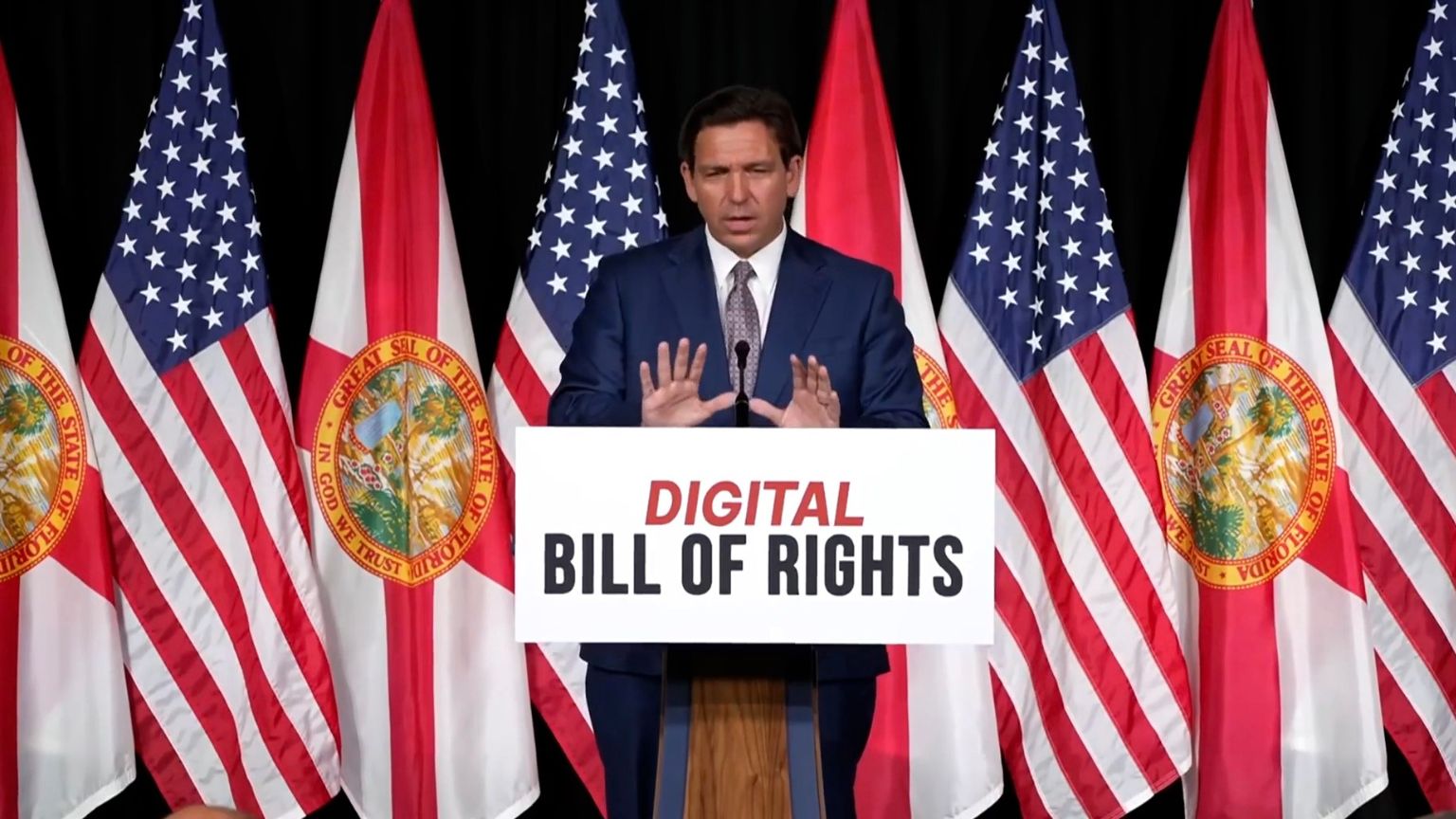During a visit to Palm Beach County, Florida’s Gov. Ron DeSantis said that the state plans on introducing a “Digital Bill of Rights” to protect Floridians from Big Tech overreach. The bill would allow residents more control over their personal data and also protect them from Big Tech surveillance.
The Digital Bill of Rights would enshrine:
- The right to have private, in-person conversations without “Big Tech” surveillance
- The right to participate in online platforms without unfair censorship
- The right to know how internet search engines “manipulate” search results
- The right to control personal data
- The right to protect children from online harms
“We want to protect your right as a Floridian to have private, in-person conversations without Big Tech surveilling you,” DeSantis said. “If you want to consent to let them have this information so they can fashion advertising based off of it, it’s your right to consent to do so but it should only be if you consent.”
“We are also going to protect the right to participate in online platforms without unfair censorship,” he continued. “We want free speech.”
“We want to protect the right to know how these internet search engines are manipulating search results [and have] transparency in terms of what they’re doing so you can evaluate if that’s a search engine that you want to use or maybe you want to take your business elsewhere.”
“We want the right to protect all of your personal data on the largest and most common platforms,” he continued, mentioning Google and Facebook by name. “They take that data and make a fortune. They should get authorization from you before they are able to monetize that or use it in any way.”
“And, finally, the Digital Bill of Rights aims to protect children from various online harms and, as that’s a huge issue,” DeSantis said.
The bill would ban TikTok and other platforms linked to China and other foreign adversaries on not only government devices. It would also ban access to such platforms on internet services provided by public schools, universities, and government offices.
“[China is] trying to inject as much garbage into this as possible,” DeSantis said. “They’re getting the data from people, creates a huge security risk to our country.”
The bill would also ban government employees from coordinating with social media platforms to censor protected speech.
Google and other search engines would be required to disclose their search result algorithms and declare whether they are based on political views or profits.













